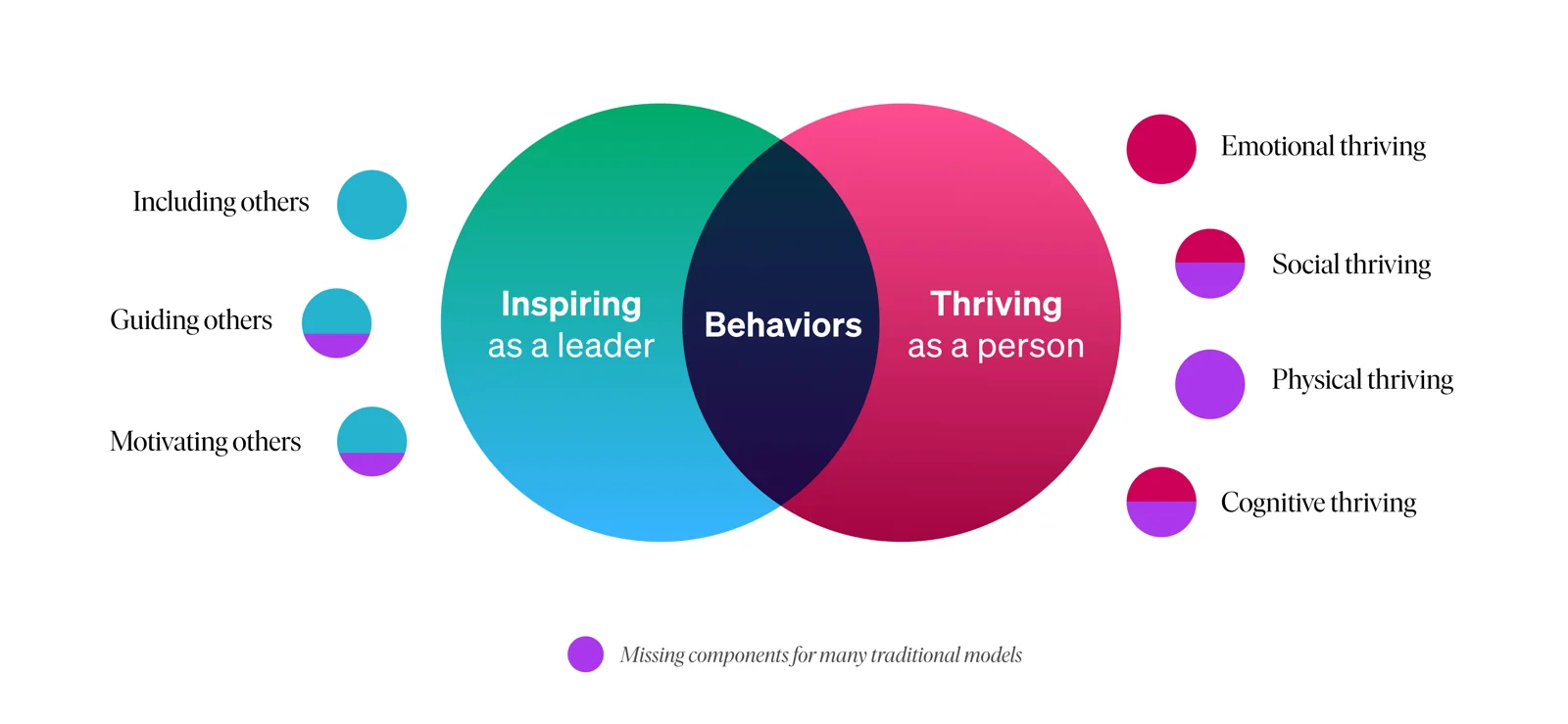-
EN - US
EN - US
-
For Business
For Business
Platform
Platform overviewIntegrationsPowered by AIProducts
BetterUp Lead™BetterUp Manage™BetterUp Care®Solutions
Sales PerformanceExecutiveDiversity & InclusionGovernmentCustomers
Case studiesROI of BetterUpResources
ResearchContent libraryCourageous leadership development hubCenter for Purpose & PerformanceDaring Leadership Institute: a groundbreaking partnership that amplifies Brené Brown's empirically based, courage-building curriculum with BetterUp’s human transformation platform.
Learn more

-
For Individuals
For Individuals
What is Coaching?
About CoachingFind your CoachTypes of Coaching
Career CoachingCommunications CoachingPersonal CoachingResources
BlogDiscover your perfect match: Take our 5-minute assessment and let us pair you with one of our top Coaches tailored just for you.
Find your coach
-1.png)
- About

There's new science behind how to develop your managers. Here's what's working.
The limitations of most L&D
Management is undergoing some uncomfortable shifts. What got results before 2020 is not yielding as much juice today. We know employee attitudes toward work have changed. Older employees are leaving the workforce in droves, while younger workers are craving development and mentorship. More millennials are stepping into leadership roles. It’s become more difficult to retain your top talent. Remote and hybrid work still has staying power.
Has your manager development strategy evolved to meet these new realities?
The shift required of your people leaders is more than just upskilling or reskilling. While skills are essential, and the need for reskilling and upskilling with so much change in the workplace is obvious, the truth is that the skills required keep changing. In this new world of work, skills have a shorter half-life than ever. While the ability to learn new skills is crucial, having managers that can ask the right questions to use their tools and skills to get closer to the outcomes that matter is even more important.
While training and workshops can help new managers learn the technical skills they need to succeed, social-emotional capabilities that drive impact are harder to develop in a one-time setting. Studies show we can lose up to 75% of new information if we don't apply it within six days.
Traditional learning content is often designed to have broad appeal, but lacks depth to be specific enough for most real-world situations. The delivery of this type of learning tends to be on a schedule that makes sense to the organization versus in the flow of work (where it is more relevant, contextual, and easily absorbed). The opportunity to practice and cement learnings is heavily curtailed, and meaningful practice is elusive.
Without feedback, how are your managers learning and applying? They need accountability and self-reflection because change and growth cannot happen without them.
The cost of failure is high, too. Across industries, studies show manager effectiveness dramatically impacts team performance, affecting engagement, creativity, productivity, and retention. Strong managers boost team performance and retention, and poor managers hamper it. However, manager effectiveness accounts for 70% of the engagement variance — more than any other factor. This means poor managers are the single biggest driver of disengagement.
Articles in this issue
The development “sweet spot”
So one-and-done and one-off won't work — but how much continuous and personalized development do managers need to be their most effective selves? Science says six months to start, but the ripple effect and impact reverberates around the one-year mark and only builds from there.
We studied 42,000 BetterUp Members across industries and learned that nearly everyone (97%) can grow (and does) across the thriving and inspiring behaviors that drive performance.
One fascinating finding is that learning and growth doesn’t level off. Managers continue to grow monthly, even for 12+ months, and their impact cascades outward over time. There is no downside to ongoing manager development if done properly. New challenges only mean new opportunities for growth—whether that’s a promotion, growing a team, adding new functions, or even layoffs. New situations create new opportunities to apply those thriving and inspiring behaviors.
Effectiveness grows as development scales
After studying thousands of managers on the BetterUp platform, we’ve found that between the 6- and 12-month development mark, they have learned and strengthened the emotional and social foundation they need to increase their leadership capabilities, but they only grow from there. As you can observe below, at this point in their developmental journey, managers learn how to “put on their oxygen mask first,” by prioritizing self-management topics in their coaching development.
At the 12 month mark, however, there is a pronounced shift away from self-management toward an embrace of strengthening capabilities like leadership skills and strategy. While this shift takes a little time to get going, ongoing development creates an exponential ROI impact (reduced direct report and manager turnover and increase in self-reported productivity).
Moreover, we see more than 2x (~2.5x) ROI impact for longer continual development period (e.g. 12 months) compared to short development period (3-6 months).
The shift from “me” to “we” empowers teams
As people shift their focus from self-management to leadership and influence, they unlock more effectiveness which leads to a ripple effect across their teams.
The next frontier in manager development
Prioritizing ongoing, continuous learning allows your managers to be resourceful, confident learners who own their learning, identify when they need to learn new skills or behaviors, and who have the confidence to drop what isn't working and seek out new information. In a day and age when change happens daily and managers have much more on their plate, empowering them to seek out what they need, when they need it may end up making all the difference in whether or not your business thrives in this new chapter.
ABOUT THE CONTRIBUTORS



-2.jpg)
-2.jpg)
-2.jpg)
-2.jpg)

-2.jpg)
-2.jpg)
-2.jpg)
-2.jpg)
-2.jpg)

